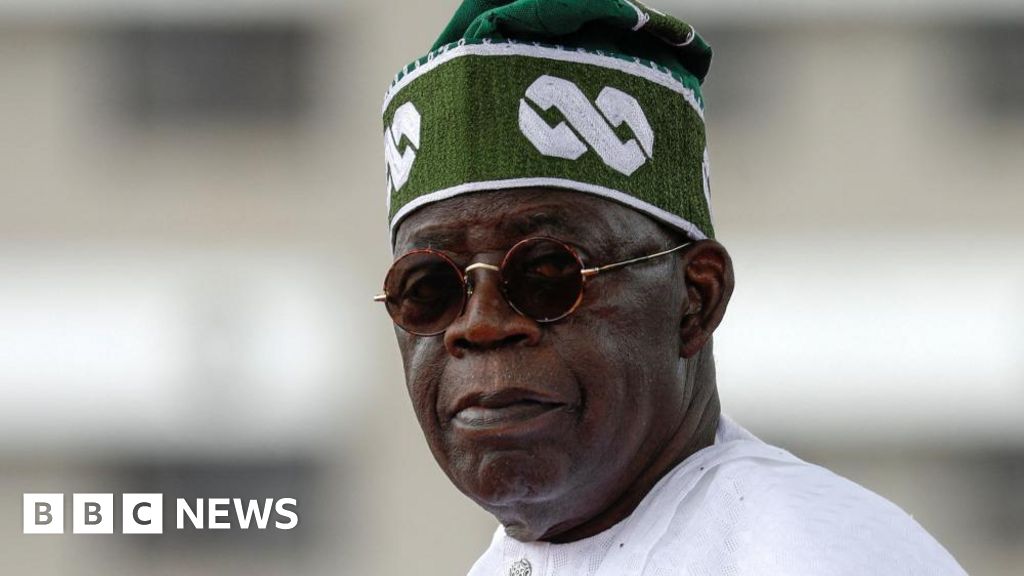Oritsegbubemi Omatseyin Lagos — President Bola Ahmed Tinubu has urged African countries to eliminate ineffective borders, update their cust...

Oritsegbubemi Omatseyin
Lagos —President Bola Ahmed Tinubu has urged African countries to eliminate ineffective borders, update their customs procedures, and pledge to a cohesive trade structure that can transform the continent's economic outlook.
At the State House in Abuja, the maiden Customs Partnership for African Cooperation in Trade, C-PACT, Summit was officially launched. President Tinubu, represented by Vice President Kashim Shettima, stated that Africa's success relies on targeted reforms that transform its vast market and population into a cohesive economic union.
He informed the delegates that Africa needs to move away from disjointed markets by adopting unified policy execution, emphasizing that each nation must show political commitment, institutional synchronization, and the willingness to utilize technology that eases trade.
He stated: “The administration's reform, unification of the exchange rate, removal of fuel subsidies, modernization of ports, and enhanced digitalization of Customs were aimed at establishing a trade-supportive environment capable of competing internationally and advancing Nigeria's continental goals.”
The President mentioned that Nigeria's National Single Window, scheduled to launch in March 2026, will greatly cut down the time needed for customs clearance, from 21 days to less than seven, thus completely meeting the digital trade standards of the AfCFTA and placing Nigeria as a leader in port automation.
He called on African governments to turn promises into tangible results that traders, producers, and transportation companies experience on a daily basis, stating, "Integration cannot be proclaimed. It has to be constructed."
At the event, the Comptroller-General of Customs, Adewale Adeniyi, mentioned that the extension of his term by President Tinubu involved specific performance targets related to the execution of the African Continental Free Trade Area, AfCFTA.
He mentioned that Nigeria's Customs Service has, during the past three months, increased its collaboration with customs authorities throughout Africa to ensure that customs is effectively incorporated into the AfCFTA implementation frameworks.
He remembered recent meetings in Ghana with the AfCFTA Secretariat, highlighting that Customs should lead in enforcing origin rules, implementing preferential duties, and managing trade preferences—key factors that decide if AfCFTA becomes practical or stays as a goal.
The CGC mentioned that establishing a free trade agreement necessitates considerable capacity development and robust political dedication, as it entails the gradual elimination of customs duties among participating nations.
He stated that previous regional integration initiatives, such as the ECOWAS Trade Liberalisation Scheme, encountered challenges due to the inconsistent fulfillment of obligations by member nations, emphasizing that AfCFTA should not follow the same path.
He stated that African economies are segmented into regions with different degrees of preparedness. However, recent discussions have facilitated agreement that Customs should be at the core of implementing AfCFTA.
CGC Adeniyi mentioned that his continuous efforts to include Customs in regional meetings resulted in the creation of C-PACT, a system aimed at promoting direct collaborations between African Customs authorities, private-sector stakeholders, regulators, and global partners.
He mentioned that Nigeria's export volume has risen by over 30 percent within two years, and the current goal is to channel a greater portion of this trade toward African markets, where the opportunities are more significant and the effect on regional growth is more substantial.
CGC Adeniyi also praised AfreximBank, the AfCFTA Secretariat, the Nigerian Export Promotion Council, commercial banks, NPA, and other organizations for collaborating with the Customs Service to enhance trade simplification.
He also stated that 30 African Customs authorities have signed up for the conference, with 22 of them represented at the Director-General level, showcasing significant involvement from West, Central, East, Southern, and North Africa.
He mentioned that, for the first time, the Secretary-General of the World Customs Organization is participating in a customs conference hosted by Nigeria, indicating significant international backing for Nigeria's leadership.
On behalf of the Minister of Finance, Dr Wale Edun, the Minister of State for Finance, Doris Anite, emphasized that customs reforms play a key role in Nigeria's financial transformation.
She mentioned that effective border management lowers business expenses, increases investor trust, and enables Nigeria to stand out in regional and international markets.
Anite highlighted the government's backing of full digital transformation in Customs processes, enhanced risk management frameworks, and alignment with international standards.
From her side, the Minister of Trade, Investment and Industry, Jumoke Oduwole, stated that the AfCFTA continues to be Africa's most significant economic tool but cautioned that structural delays and obsolete systems still impede its effectiveness.
She emphasized changes implemented in collaboration with the Nigeria Customs Service, such as tariff relief frameworks and a specialized air-freight export route targeting East and Southern Africa.
The Secretary-General of the World Customs Organization, Ian Saunders, stated that Africa's economic outlook for 2025 indicates significant growth, yet the continent's capacity to realize this potential is largely dependent on the effectiveness of its customs systems.
Remembering one of the WCO's slogans: "Borders divide; Customs connects," Sanders stated that the C-PACT closely matches the WCO's goal of assisting Customs authorities worldwide via standards, training, and operational support.
In the meantime, Kanayo Awani, Executive Vice President of AfreximBank for Intra-African Trade, mentioned that the Bank is assisting with Customs modernization throughout Africa, such as transit-bond guarantees, digital monitoring systems, and the AfCFTA Adjustment Fund to assist nations in compensating for lost tariff income.
She mentioned that Africa cannot fully benefit from the AfCFTA unless there are unified systems and compatible customs operations.
The AfCFTA Secretary-General, Wamkele Mene, stated that the execution of the agreement's annexes concerning Customs collaboration, transportation, and trade efficiency necessitates the involvement of Customs authorities throughout all phases.
He commended Nigeria's leadership and the CGC's function as Chair of the WCO Council, noting that Africa depends on Customs to implement trade regulations into real-world border results that cut expenses, minimize red tape, and ensure market access for African goods.



